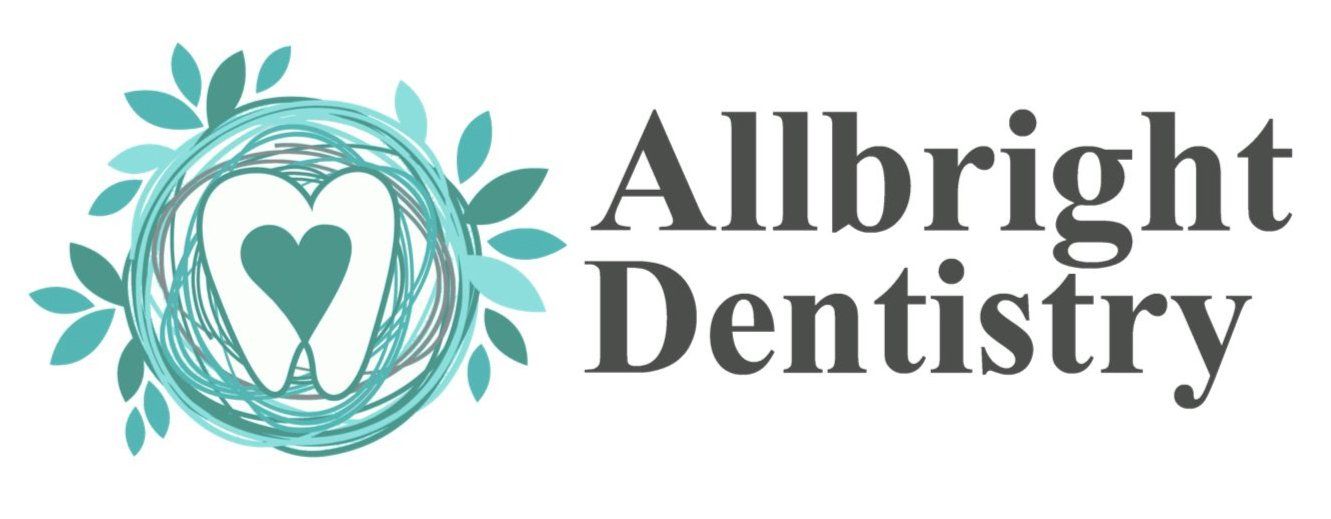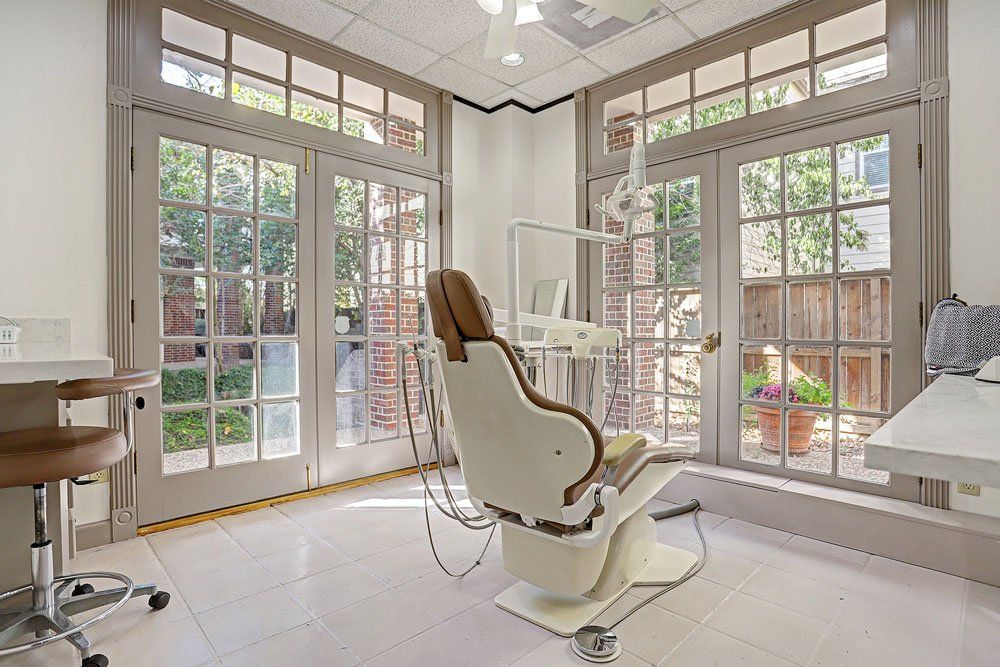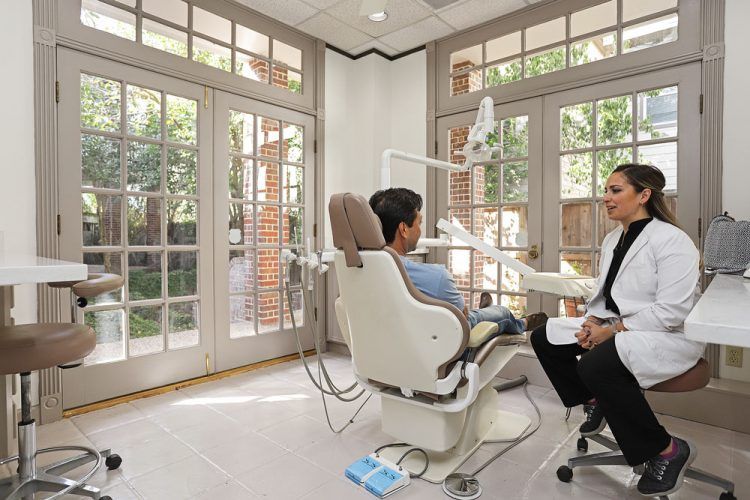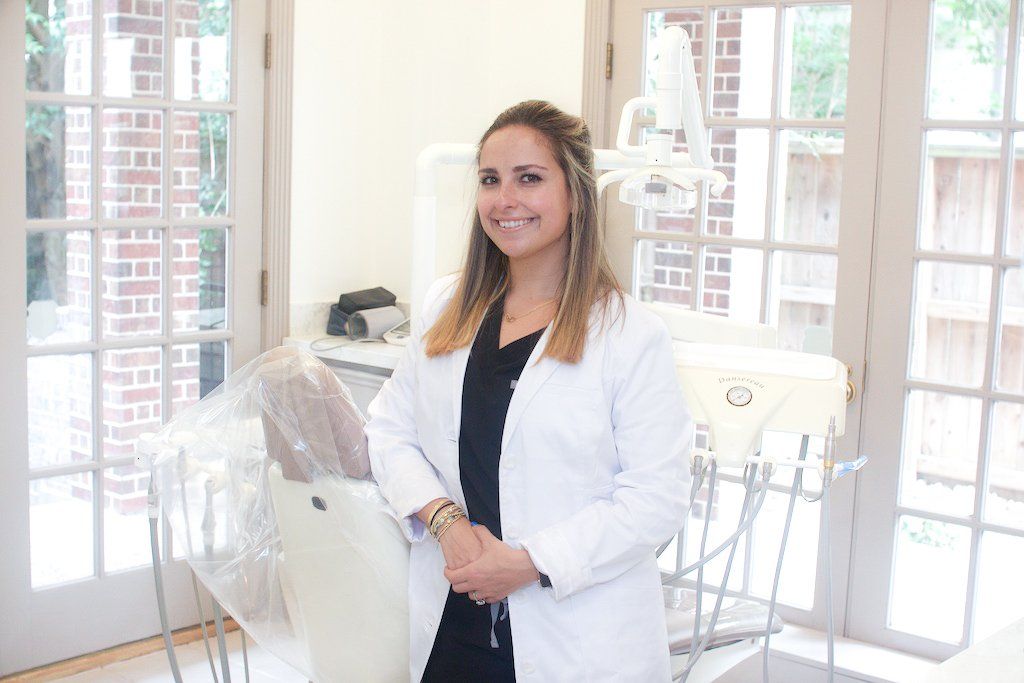
Family Dentistry in Houston
Houston's Complete Dental Care
Get your teeth looking amazing again!
- General Dentistry
- Cosmetic Dentistry
- Restorative Dentistry
- Emergency Care
What We Do
Popular Procedures
Whether you need teeth whitening, dental crowns, or a more complex procedure, Allbright Dentistry in Houston can help. We have an in house Orthodontist and Periodontist so you don't have to drive around town!
Dental Implants
Similar to bridges, dental implants are often used to fill in gaps left by missing teeth.
Teeth Whitening
Laser teeth whitening allows us to whiten your teeth for as much as 8 shades in just one visit.
Dental Exams & Consultations
A healthy mouth is the gateway to a healthy body and helps prevent issues from creeping up when you least expect them.
Porcelain Veneers
Used to restore the appearance of a healthy smile, veneers are thin layers applied to the visible areas of your teeth.
Prevention
Proper oral hygiene does not only prevent caries and periodontal disease but also affects our overall health and well-being.
Invisalign
Invisalign is the perfect alternative. Invisalign fits patients with customized, progressive trays made of plastic.
Houston's Complete Dental Care
Allbright Dentistry
Allbright Dentistry is a collection of dentists in the Spring Branch area of Houston dedicated to providing the best in family dentistry. We start caring for your family from children, through teens with cavity prevention and orthodontics when needed. Our adult care includes specialty care for periodontics and cosmetic procedures should you need any of these to improve your smile or help to restore your smile and function.
We feature a clean and state of the art office and have an in office Dentist, Orthodontist, and Periodontists so you no longer have to go to multiple locations for that healthy smile. We truly are your one stop Dental Office in Houston. We are here for you today and tomorrow. Come meet our team and find out how easy a beautiful smile can be yours, forever!
Testimonials
What Our Clients Are Saying

Fred Ribeiro
Very happy with my choice!
I was referred here by a friend of mine who had been to this dentist since they opened up. He kept raving about it so I decided to give them a chance. Very happy I did because it was a great visit from start to finish.
★★★★★

Mike Starres
Dr. Roozbeh is the best!
Today was the first time I visited Dr. Roozbeh with some hesitation since it was a new dentist for me. All I can say is that I am glad I made that choice and found myself a new dentist for life!
★★★★★

Erik Fisher
A Dentist I Can Trust!
The Dr. treats me with great care as if I was family. Been coming here since the start and wouldn’t trust anyone else at this point.
★★★★★
Get To Know Us More
We Are Allbright Dentistry
Allbright Dentistry is a collection of dentists in the Spring Branch area of Houston dedicated to providing the best in family dentistry. We start caring for your family from children, through teens with cavity prevention and orthodontics when needed.
Our adult care includes specialty care for periodontics and cosmetic procedures should you need any of these to improve your smile or help to restore your smile and function.
Frequently Asked Questions
Allbright Dentistry FAQs
-
What Dental Insurance Providers do you work with?
We accept most PPO insurance plans, but you're welcome to give us a call at 713-722-8400 to ask about yours. Here are a few examples:
- Aetna
- Ameritas
- Assurant/ Sun Life
- BC BS of TX
- Connection Dental
- Careington
- Cignal
- Principal
- Guardian
- Humana
- United Concordia
- United HealthCare
- MetLife
- Delta Dental
- Unicare
- First Continental (FCL)
- Dental Select
- WellCare
- Envolve
-
Do you offer Payment Plans?
Although most dentistry procedures are covered by your insurance; we do offer an extensive list of payment plans, cosmetic procedure loans and other types of credits. Our goal is to divide your treatment costs into smaller monthly payments.
-
What can I do if I have a dry mouth?
The basic problem in dry mouth, or xerostomia, is a lack of saliva. This can be caused by diseases of the salivary gland, medications that decrease salivary flow as a side effect or as a natural result of aging. This decrease in saliva can lead to a number of severe dental problems such as gum disease, tooth decay and mouth infections.
The best way to combat this problem is to use sugar free candy or gum and to drink plenty of water. Do not use sugared candy or soda, as they can lead to rapid dental decay in patients with dry mouths. Several over the counter products are also available that can help with some dry mouth symptoms. If you’re concerned that you may have xerostomia, contact your dentist or physician to determine its cause and see what might work best in your situation.
-
Are electric toothbrushes better than manual brushes?
If a manual toothbrush is used for the appropriate amount of time, and done with proper technique, it can perform just as well as a powered toothbrush. But many people don’t brush for the recommended two to three minutes. Children are also good candidates for powered brushes as their brushing habits tend to be less than optimal.
While everyone certainly does not need an electric toothbrush, in many instances they can be beneficial. Ask your dentist if you have any questions about which brush is best.
-
Why should I have my teeth cleaned twice a year?
In a perfect world everyone would brush and floss twice a day. Plaque builds up over time and this sticky bacterial film can solidify and turn into calculus or tartar. This cement-like substance is removed by the hygienist at your regular cleaning visits. A six-month interval not only serves to keep your mouth healthy and clean, it allows potential problems to be found and diagnosed earlier.
In some instances a six-month schedule in not enough. Based on your dental history, rate of calculus buildup, and pattern of decay a 3 or 4 month interval may be needed. Your dentist can work with you to determine what will be best for you.
-
What are my options for replacing a missing tooth?
When a tooth is lost, a whole series of events can begin to occur. Chewing on the affected side becomes more difficult and over time the remaining teeth can actually tilt and erupt into the open space.
Depending on the location of the missing tooth, we would most likely recommend either a dental implant, a bridge, or a partial denture.
All of these options have their benefits and drawbacks. If you would like more information your dentist can usually schedule a consultation to go over the specifics of your case.
-
It′s been a long time since I′ve visited the dentist. What do I need to do?
You’re not alone! Whether it’s been 6 months or 6 years, it’s never too late to get back into the routine.
At our office, we can arrange for you to have a thorough and educational exam appointment. We have been taking care of people just like you for over 50 years – take advantage of our experience! We’re here to help!
-
Can you help relieve my toothache?
Usually, yes! There is an array of measures any dentistry professional can take to help relieve your toothache. Whether you need a root canal, extraction, an antibiotic, or any other service or procedure, all dentists are trained to uncover the source of the pain and offer a viable and immediate solution for tooth pain of all kinds.
-
Are dental X-rays really safe?
Yes. After years of research and testing, the X-rays conducted within the field of dentistry have been made as safe as possible. Although they may give off trace levels of radiation, the specialty, lead-lined full body aprons worn by patients are specifically designed to protect the body from any stray radiation.
-
What is a root canal?
Simply put, a root canal is a procedure that involves removing the nerve from the inside of the tooth. This is in order to remove the dead nerve as a form of preventative maintenance and pain control, as well as a means of treating the infection.
-
At What age should you start visiting the dentist?
Ideally, most children should begin seeing the dentist around the age of 6 months or when they begin teething. While you as a parent can help by teaching them proper dental hygiene, it is essential that your child begins to visit the dentist early in life.
-
What exactly is a ″missing tooth clause″?
A little-known fact, many insurance companies have a clause that states that patients will not be charged to replace a tooth that was missing prior to the date in which the insurance went into effect.
-
What is ″dry socket″ and how is it treated?
A medical condition that occurs as a result of a tooth being extracted and improperly managed, dry socket happens when you get a tooth pulled and the blood clot either fails to form properly or becomes dislodged via the action of smoking or sucking on a straw. A very painful condition, dentists will typically pack the socket with dry socket paste, bone graft material, or surgical foam in order to relieve the pain and promote the healing process.
-
I′ve heard of dental implants. What are they?
Simply put, in terms of those who may have one or a number of missing teeth, dental implants are essentially replacement teeth that are implanted with a small screw into the jawbone, in order to repair the smile and prevent further damage that may be caused by missing teeth.
-
Is flossing as important as brushing?
Yes and no. On the one hand, you definitely need to brush your teeth at least twice daily in order to keep decay at bay. On the other hand, flossing is also imperative as it gets into spots that your toothbrush just can’t. Ideally, you should floss every time you brush. However, don’t skip brushing just because you ran out of floss. Simply put it on the list and resume flossing when you have purchased more.
-
Does teeth whitening really work or is it a waste of time?
Do-it-yourself teeth whiteners and pastes are not the best. However, the methods used by your dental professional work well and can last many months or even years with regular maintenance.
-
Why do my gums bleed? Is this treatable?
Gums bleed for an array of reasons; usually brushing too hard is the least of your concerns. It is most often a sign of periodontal disease, gingivitis and other gum diseases. While many decide to brush less aggressively as a remedy, that course of action won’t treat the problem. Your dentist can come up with a much more effective treatment plan for bleeding gums — and less frequent or aggressive brushing is typically not a part of the package.
Get In Touch Today
Get A Free Consultation
Book A FREE Smile Consultation Today!
Bottom homepage
Thank you for contacting Brighten Dental.
We will get back to you as soon as possible.
Oops, there was an error in sending your message. Please try again later.

Fred Ribeiro
VERY HAPPY WITH MY CHOICE!
I was referred here by a friend of mine who had been to this dentist since they opened up. He kept raving about it so I decided to give them a chance. Very happy I did because it was a great visit from start to finish.
★★★★★
3 locations in Houston. We have an office near you
Mon - Thu: 9:00AM - 5:30PM
Fri: 9:00AM - 2:00PM

All Rights Reserved | Powered by AutomationLinks
All Bright Dentistry, PLLC serves the Houston area with its state of the art equipment and friendly staff. Come see how All Bright Dentistry, PLLC can show you a new level of experience at the dentist.
3 Locations Near You
Serving The Proud State Of Texas
We're Available By Phone
All Bright Dentistry, PLLC Locations
5770 Hollister
Suite 100
Houston, Texas 77040
713-460-2444
2310 Settler’s Way Blvd
Sugar Land,
Texas 77478
281-265-2222
2666 S Gessner Road
Houston, Texas 77063
281-558-3384
Opening Hours
- Monday
- -
- Tuesday
- -
- Wednesday
- -
- Thursday
- -
- Friday
- -
- Saturday
- Closed
- Sunday
- Closed
All Rights Reserved | Allbright Dentistry | Powered by AutomationLinks













